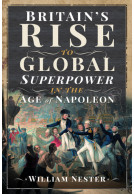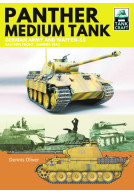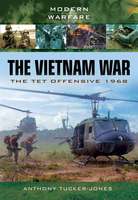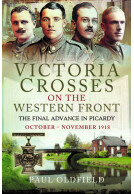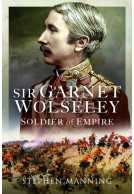The Second World War Tank Crisis (ePub)
The Fall and Rise of British Armour, 1919–1945
Imprint: Pen & Sword Military
File Size: 35.3 MB (.epub)
Pages: 240
Illustrations: 30 black and white illustrations
ISBN: 9781399003537
Published: 13th April 2021
| Other formats available | Price |
|---|---|
| The Second World War Tank Crisis Paperback Add to Basket | £14.99 |
| The Second World War Tank Crisis Hardback Add to Basket | £25.00 |
British Second World War tanks performed so badly that it is difficult to bring to mind any other British weapon of the period that provokes such a strong sense of failure. Unfortunately, many of the accusations appear to be true – British tanks were in many ways a disgrace. But why was Britain, the country that invented them, consistently unable to field tanks of the required quality or quantity throughout the conflict? This perceived failure has taken on the status of a myth, but, like all myths, it should not be accepted at face value – it should be questioned and analysed. And that is what Dick Taylor does in this closely researched and absorbing study.
He looks at the flaws in British financial policy, tank doctrine, design, production and development before and throughout the war years which often had fatal consequences for the crews who were sent to fight and to be ‘murdered’ in ‘mechanical abortions’. Their direct experience of the shortcomings of these machines is an important element of the story. He also considers how British tanks compared to those of the opposition and contrasts tank production for the army with the production of aircraft for the RAF during the same period.
His clear-sighted account goes on to explain how, later in the conflict, British tank design improved to the point where their tanks were in many ways superior to those of the Americans and Germans and how they then produced the Centurion which was one of the best main battle tanks of the post-war era.
This book about British tanks is a good addition to any tank lover's bookshelf.
NetGalley, Meg Long
An interesting book for anyone interested in the history of tanks, not just WW2.
Military Model Scene
Read the full review here
I love a book where you’re going to learn something new, and from this book, I learnt a whole lot of new knowledge. I mean I never knew Britain had not done very well at building tanks, it had crossed my mind how we didn’t seem to do well in the ‘tank stakes’, but I hadn’t thought much more about it. But it turns out at the beginning we were doing very well, but things have slowly gone down ever since, a bit like the British car industry. This book is very well written, and it’s been written for the ordinary reader, it looks at design, money, influence and development both by machine and politically. The author Dick Taylor has written such a good and balanced book that would please those that know all the technical details to someone like me who is still learning about the life of tanks. I very much enjoyed the detail and thoughts of Taylor, who clearly knows what he talks about. The book was so enjoyable it made me want to read a book similar to this that looks at both the development of tanks, planes and ships and to compare the difference between the three in the 20th century. A great book to read and recommend.
UK Historian
Read the full review here
The book strikes an excellent balance between technical detail (such as the complexities of deep welding), jargon and wider principles while maintain readability throughout. The author, who is also the official historian of the Royal Armoured Corps wonderfully combines abundant expertise, the ability to explain complicated things in laymen’s terms and clear, engaging prose.
ARRSE (Army Rumour Service)
Read the full review here
"(The Second World War Tank Crisis") is well researched and authoritative. It stands comparison with the works of David Fletcher and Richard Ogorkiewicz, two of the most respected tank historians….Dick Taylor is very clear that the Ministry of Supply, responsible for tank design and production, always played second fiddle to the Ministry of Aircraft Production .Bombing (both defence and offence) was given undue importance in pre-war defence planning and this distortion endured throughout the war. The effects on tank development are well documented here. It's a telling coincidence that this book was published at the same time as the latest volume by Greg Baughen of his history of the RAF: "RAF at the Crossroads" (also from Pen & Sword). The books are complementary and worth reading together.
Amazon UK Review
5 Stars
Rating: 5 out of 5 stars
NetGalley, Sue Hawthorne
A compelling in depth look at the failings and subsequent turn-around of the WWII British tanks. Having heard tales of the tank's poor performance it was an interesting and detailed account of the sequence of events. Very informative and enlightening. Thank you Lt Col Dick Taylor for your investigation into the history of British tanks. Thank you Netgalley for the opportunity!
It's a good read and is well supported with many quotes of those who saw through the smoke and helped forge the success of the Centurion, the best of the best.
Gary Wenko, Japanese Aviation
Rating: 5 out of 5 stars
NetGalley, David Fleshbourne
Excellent book, as an armchair historian I was aware that British tanks in the early part of the second world war were woeful, but did not know the reasons why.
This book both informs and provides the reasons why. Lt Col Taylor has written a detailed, interesting but easy read into how both the British Army in its doctrine and the incompetence of government caused Britain to go to war with tanks not fit for purpose, and after Dunkirk with very few left.
The book also covers briefly German and American tank design, manufacture and purpose compared to the British design.
The book also through it's detailed look at British tank design and manufacture explains how we learnt lessons and managed to develop by the end of the war one of the best tanks in the world at that time. (the Centurion)
An excellent read for anyone with an interest in world war 2 tanks, or an interest in how Britain's design and manufactured military equipment in the second world war. A soldier is only as good as the equipment he uses, this valuable book explains how British tank crewmen received their equipment.
An interesting and informative book that analyses the big picture concerning tank development and tactics before and during WW2. It rightly describes the later emergence of better quality British tanks but I did not quite get the sense of the American tanks (Sherman etc) being low cost high volume but therefore ‘disposable’ whilst filling the gap until better British tanks became available. Perhaps that is one of the myths that the book sought to deal with. Generally though an enjoyable read.
Michael McCarthy
Michael McCarthy. Battlefield Guide
About Richard Taylor
Dick Taylor started his service in the British Army at the tender age of sixteen as a Junior Trooper at the Junior Leaders Regiment Royal Armoured Corps in Bovington. After completing training he served with 3RTR and 2RTR. As well as being a tank commander, he was a specialist in tank gunnery. He was commissioned as a captain in 2000 into 1RTR and left the regular army as a lieutenant colonel in 2013, although he has since been mobilized for operational service three times for tours overseas. During his long career he completed fifteen operational deployments to various hot spots including three tours of Afghanistan, two to Iraq, as well as Northern Ireland, Bosnia, Kosovo, Sierra Leone and South Sudan. He is the official historian of the Royal Armoured Corps, has an avid interest in modern and military history and writes military history books for a hobby. His most recent publication is The Second World War Tank Crisis: The Fall and Rise of British Armour 1919-1945.












